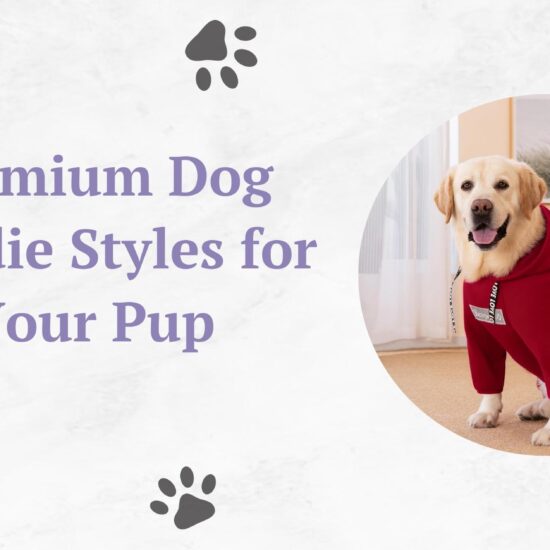We place a high value on the health and happiness of our pets, and a major contributor to that is the food they eat. A healthy and well-balanced diet is essential for the growth and well-being of your pet, just as it is for you.
Table of Contents
Introduction
In this detailed manual, we will delve into the topic of pet nutrition, understand the importance of pet nutrition, and offer helpful tips for feeding your pet a balanced diet.
Importance Of Pet Nutrition
The health and vitality of our animal friends depend on their diet, making it a cornerstone of pet care. Just like humans, pets need a balanced and healthy diet to thrive and enjoy full, happy lives. Pet nutrition is not only about keeping them alive; it is vital to their overall physical, mental, and emotional health.
A balanced and customized diet provides pets with a wealth of vital nutrients, fueling their development and day-to-day activities. A pet’s body needs a wide variety of nutrients, including amino acids, vitamins, minerals, and other components, in order to function at its best. Proteins, the body’s fundamental building components, are essential for pets to sustain robust muscle and organ function. Carbohydrates serve as an essential source of energy for animals, allowing them to play and investigate their environment.

Furthermore, healthy eating acts as a protector, protecting pets from diseases and other health problems. A healthy diet that includes a wide variety of nutrients is like armor against disease. A solid dietary foundation can considerably reduce the risk of many health concerns, such as heart problems and digestive diseases.
Nutrition also has a tremendous effect on the condition of a pet’s skin and coat. Glossy fur and smooth skin are the result of a diet rich in vital fatty acids. This not only makes pets seem better, but it’s also an outward sign of their inside health.
The robustness and efficiency of a pet’s immune system are also directly related to the quality of its diet. Vitamins A, C, and E, plus minerals like zinc and selenium, are all essential for a healthy immune system. Having a strong immune system acts as a shield, protecting pets from a wide range of pathogens that could otherwise threaten their health, proving the importance of pet nutrition.
The importance of pet nutrition is so vital that there is a possibility of extending a pet’s companionship through proper feeding, which is one of the most astonishing and encouraging aspects of pet care. A healthy and nutrient-rich diet can extend the time pets spend with their human family, bringing them greater love and happiness.
Understanding Pet Nutrition
Species, age, size, and activity level are just a few of the aspects that influence a pet’s unique dietary needs. The content of a healthy, well-balanced diet for them is heavily influenced by these aspects.
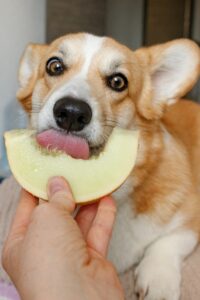
Nutrients And Vitamins
Proteins: These macromolecules serve as the body’s primary structural components. They’re crucial for getting stronger, fixing injuries, and expanding physically. Complete amino acid profiles are why high-quality animal-based proteins, including those from chicken, cattle, or fish, are favored.
Carbohydrates: Pets require energy from carbohydrates to do their regular tasks. Dogs, unlike cats, who must rely on animal protein and fat for their nutritional needs, can benefit from the complex carbs contained in whole grains like brown rice and oats.
Fats: Fats serve various purposes and provide a concentrated source of energy. Skin and coat health, cognitive function, and the absorption of fat-soluble vitamins like A, D, E, and K all rely heavily on these factors.
Vitamins and Minerals: The body can’t function properly without them. Vitamin A helps the eyesight and the immune system, and calcium and phosphorus are essential for healthy bones and teeth. To make sure pets get all the vitamins and minerals they need, it’s best to feed them a balanced diet with a wide range of nutrient-rich foods.
Inadequate water intake is often disregarded, despite its importance. Pets need access to clean water at all times to aid with digestion, maintain a healthy body temperature, and speed up their metabolism.
How to Read Pet Food Labels
Learning how to read pet food labels is a crucial step in providing the best pet nutrition. Reading the ingredients list in the order they appear is essential. The ingredients in a recipe are typically arranged from most abundant to least abundant. Look for labels that list entire grains instead of fillers like corn or wheat and true protein sources (such as “chicken” instead of “poultry by-product”).
Tips For Feeding Your Pet A Balanced Diet
Once you understand the importance of pet nutrition, you will realize that providing food for your pet is a bigger commitment than just setting down a bowl. The key to ensuring their health and happiness is to pay attention to details like portion size, meal frequency, and treats.

Reducing Serving Sizes
The key to avoiding the myriad of health problems that can result from overeating is the notion of portion control. Diabetes, joint pain, heart problems, and a shortened lifespan are just some of the consequences that can arise from pet obesity. Following the portion guidelines found on most commercial pet food packaging is the best way to ensure that your pet stays at a healthy weight. Your pet’s age, size, and energy level are all considered in these recommendations.
It’s important to keep an eye on your pet’s weight regularly. They should have a noticeable waist when viewed from above, and you should be able to feel their ribs when you run your fingers along their sides. If your pet’s weight starts to creep above or below a healthy range, it’s time to talk to the vet about making some changes.
How Often You Feed Them
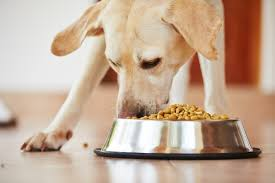
Understanding your pet’s nutritional requirements as they change with age is essential. Puppies and kittens have higher energy needs because they are still growing. Therefore, they do better with more frequent meals, say, three to four times a day. Their quick development and boundless vigor are made possible by the steady supply of nutrients provided by this diet.
Pets can reduce their feeding frequency when they reach adulthood since their energy needs level out. The best results are shown when feeding adult dogs and cats twice daily. This time frame allows them to get the fuel they need to go through the day without putting undue stress on their digestive systems.
However, a slightly different strategy is needed when dealing with senior pets. Changes in metabolism and the digestive system’s efficiency are common as people age. Smaller, more frequent meals can reduce the burden on their digestive systems and help seniors cope with age-related health issues. Nutrient absorption is improved, and gastrointestinal distress is reduced, using this method.
Refraining from Unhealthy Foods

Protecting your pet from harmful substances is an important element of pet care. Some human meals, in particular, can be toxic to animals. Chocolate, a human favorite, includes theobromine and caffeine, two chemicals harmful to pets that can cause gastrointestinal distress and even death.
Despite their seemingly harmless appearance, grapes and raisins can cause significant kidney damage in animals. Anemia and other health problems may be caused by chemicals found in onions and garlic.
Artificial sweeteners like xylitol, which are commonly used in sugar-free foods and drinks, can be fatal to pets because they cause hypoglycemia and liver failure.
Additionally, cooked bones can be harmful. When chewed, roasted bones can shatter and cause serious internal injuries, including punctures or blockages, despite common belief to the contrary. Stick to pet-safe foods and treats to keep your pet healthy.
Comparison between Store-Bought and Homemade Pet Food
It’s important to give serious thought to the pros and cons of both homemade and store-bought pet food. You have complete control over the ingredients in a homemade diet, providing a more individualized nutritional experience for your pet. However, creating a customized diet that’s balanced for your pet requires a thorough grasp of their individual nutritional needs. To make sure your pet is getting all the nutrients it needs, it’s best to talk to your vet or a veterinary nutritionist before switching up their food.
However, premium commercial pet food is made with dietary needs in mind and is subjected to stringent safety testing. You may rest assured that the nutritional demands of your pet will be addressed if you choose a reputable brand. Providing appropriate nutrition for your pet is frequently as simple as choosing a commercial food that is well-balanced and suitable for your pet’s age, size, and health conditions.

Sweets
Pets love treats, and giving them treats is a great way for owners to strengthen their relationships with their dogs. They are also used as a kind of reinforcement during periods of training. However, it’s important to avoid giving out too many sweet treats at once. You might undo all your hard work maintaining a healthy weight by indulging too much. Your pet should not consume more than 10 percent of its total daily caloric intake from treats.
Treats should be chosen carefully to ensure they meet your pet’s nutritional needs. Small portions of lean meat, vegetables, or treats made especially for pets are all great choices. Although treats are a welcome addition to your pet’s diet, remember that their regular meals should still be the focus.
Routine Veterinary Exams
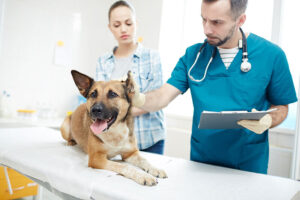
The importance of pet nutrition cannot be neglected, but at the same time, there are other aspects to your pet’s health too. It’s important to take them in for checkups regularly. Your pet’s specific nutritional requirements will depend on their breed, age, amount of activity, and current health status, and your vet may advise you accordingly. Nutritional deficiencies and other health issues can be detected and treated sooner with the help of these checkups.
Note: There might be affiliate links mentioned here. We may receive a commission if you purchase a product through an affiliate link. There is no additional charge for you. Please do your own research before making any online purchases.
Pet Nutrition Worries
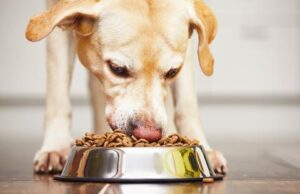
One size does not fit all in the complex world of pet nutrition. Our animal companions, like people, have individual nutritional requirements and problems that require individualized care and attention. By fixing these nutritional issues, pets will have the best possible start to a long and happy life.
Food Allergies and Intolerances
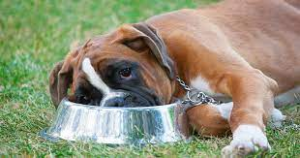
Just like humans, pets can acquire sensitivities or allergies to particular foods or substances. Excessive itching, skin irritation, gastrointestinal trouble, and recurring ear infections are only some of the symptoms of an allergic reaction. Meat, poultry, dairy, and grains are common sources of pet food allergies.
A trip to the vet is essential if your pet exhibits signs that could be related to allergies or sensitivities. Veterinarians are trained to diagnose these problems and recommend solutions because they know how to get to the bottom of them.
They know the importance of pet nutrition and can give you expert tips for feeding your pet that are customized to your pet’s needs. An elimination diet may be suggested under certain circumstances. Your pet’s allergen can be pinpointed by eliminating all possible food sources and then gradually reintroducing them. Symptoms can be reduced or eliminated altogether by changing your pet’s diet if a cause has been determined.
Controlling Weight
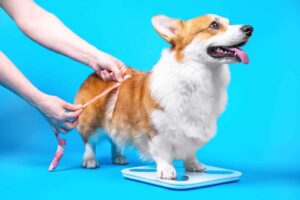
Keeping your pet at a healthy weight is essential to his or her long life. Obesity is harmful to pets in the same way that it is harmful to humans. When pets are overweight, it puts extra stress on their joints, worsens any preexisting health concerns, and lowers their quality of life. A careful approach to weight control is crucial for avoiding these hazards.
A trip to the clinic is in order if you worry your pet is overweight or are unsure of their appropriate weight. Your veterinarian may evaluate your pet’s health, give you advice on what their ideal weight should be, and help you develop a strategy to help them reach that weight. The plan may include dietary changes, portion control, and the development of an activity schedule that takes into account the person’s strengths and weaknesses. Your pet will have a longer, healthier, and happier life with your dedication to a planned weight management plan.
Alternative Diets
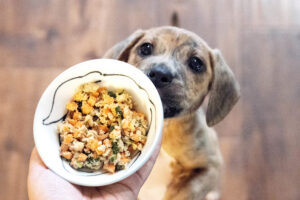
The particular medical needs of some pets necessitate careful attention to their food. Your pet’s dietary requirements may change drastically if they suffer from a condition such as kidney disease, diabetes, or a gastrointestinal illness. Addressing these issues calls for a tailored strategy that accounts for their unique health needs.
For the most effective treatment of these disorders, veterinarians and veterinary nutritionists turn to prescription diets. These medically recommended diets are tailored to meet the specific nutritional needs of patients while also accommodating the symptoms of their illness. Reduced protein levels are one factor that can be taken into account when creating a diet for a pet with kidney disease. Other factors include restricted phosphorus and salt levels.
It is crucial to stick to these diet plans to the letter. Treatment effectiveness and your pet’s health are both at risk if you deviate from the prescribed protocol. The idea is to be in close contact with your vet so that they can track your pet’s progress and make dietary adjustments as needed.
Foods You Should Give Your Dog and Foods to Avoid
Feeding your dog the right foods is crucial for their health and well-being. While some human foods are safe and even beneficial for dogs, others can be harmful or toxic. Here’s a guide to help you make informed choices about what to feed your furry friend.
Foods You Should Give Your Dog
| Food | Benefits |
|---|---|
| Carrots | High in fiber and beta-carotene, good for dental health and vision. |
| Blueberries | Rich in antioxidants, vitamins C and K, and fiber. |
| Pumpkin | Great source of fiber and beta-carotene, helps with digestion. |
| Salmon | High in omega-3 fatty acids, promotes a healthy coat and skin. |
| Peanut Butter | Good source of protein and healthy fats, great for enrichment toys. |
| Apples | Provide vitamins A and C, and fiber; avoid seeds and core. |
| Cucumbers | Low in calories, good for hydration and weight management. |
| Sweet Potatoes | High in fiber, vitamins A and C, and antioxidants. |
Foods to Avoid
| Food | Risks |
|---|---|
| Chocolate | Contains theobromine, which is toxic to dogs. |
| Grapes/Raisins | Can cause kidney failure. |
| Onions/Garlic | Can damage red blood cells, leading to anemia. |
| Avocado | Contains persin, which can cause vomiting and diarrhea. |
| Alcohol | Can cause intoxication, coma, and even death. |
| Macadamia Nuts | Can cause weakness, vomiting, and hyperthermia. |
| Xylitol | Found in sugar-free products, can cause insulin release and liver failure. |
| Caffeine | Can cause restlessness, rapid breathing, heart palpitations. |
Tips for Feeding Your Dog
- Moderation: Even safe foods should be given in moderation to avoid digestive issues.
- Consult Your Vet: Always check with your veterinarian before introducing new foods to your dog’s diet.
- Balanced Diet: Ensure your dog gets a balanced diet with the right mix of proteins, fats, and carbohydrates.
Feeding your dog the right foods can contribute to their overall health and happiness. Always be mindful of what you offer them and consult with your vet to ensure their diet meets their specific needs.
Foods You Should Give Your Cat and Foods to Avoid
Feeding your cat the right foods is essential for their health and well-being. While some human foods are safe and beneficial for cats, others can be harmful or even toxic. Here’s a guide to help you make informed choices about what to feed your feline friend.
Foods You Should Give Your Cat
| Food | Benefits |
|---|---|
| Salmon | High in protein and omega-3 fatty acids, promotes a healthy coat and skin. |
| Spinach | Rich in vitamins A, C, and K, as well as iron and calcium. |
| Cantaloupe | Contains antioxidants and beta-carotene, good for skin and eye health. |
| Eggs | Excellent source of protein and B vitamins. |
| Chicken | High in protein, essential for cats as obligate carnivores. |
| Pumpkin | Good source of fiber, helps with digestion. |
| Blueberries | Rich in antioxidants, vitamins C and K. |
| Fish Oils | Provides omega-3 fatty acids, supports skin and coat health. |
Foods to Avoid
| Food | Risks |
|---|---|
| Onions/Garlic | Can cause oxidative damage to red blood cells, leading to anemia. |
| Chocolate | Contains theobromine, which is toxic to cats. |
| Grapes/Raisins | Can cause kidney failure. |
| Alcohol | Can cause intoxication, coma, and even death. |
| Caffeine | Can cause restlessness, rapid breathing, and heart palpitations. |
| Avocado | Contains persin, which can cause vomiting and diarrhea. |
| Raw Eggs/Meat | Risk of bacterial infections like Salmonella and E. coli. |
| Xylitol | Found in sugar-free products, can cause insulin release and liver failure. |
Tips for Feeding Your Cat
- Moderation: Even safe foods should be given in moderation to avoid digestive issues.
- Consult Your Vet: Always check with your veterinarian before introducing new foods to your cat’s diet.
- Balanced Diet: Ensure your cat gets a balanced diet with the right mix of proteins, fats, and carbohydrates.
Feeding your cat the right foods can contribute to their overall health and happiness. Always be mindful of what you offer them and consult with your vet to ensure their diet meets their specific needs.
Conclusion
The importance of pet nutrition cannot be overstated when it comes to taking care of pets. Your pet’s health and happiness are tied to your ability to understand its dietary needs, choose a suitable food, exercise portion control, and keep up with regular veterinary checkups. Provide your pets with the same balanced diet you provide yourself to ensure their optimal health. By taking the time to ensure your pets receive the best possible diet, you are giving them the gift of a long, healthy life.
FAQs
What is the importance of pet nutrition?
The importance of pet nutrition is evident from the fact that it can increase your pet’s lifespan. The food you provide your pet has a major effect on its vigor, health, and lifespan. In order to survive, keep up energy levels, prevent health problems, and support various physiological functions, pets, like humans, need a well-balanced diet.
What are the pet nutrition requirements?
Proteins for muscular growth, carbs for energy, fats for skin and coat health, vitamins and minerals for general health, and water for hydration and metabolic processes are all necessary for pets.
What is the importance of pet nutrition in making their immune system stronger?
Vitamins A, C, and E, as well as minerals like zinc and selenium, are crucial to a healthy immune response and can be found in a balanced diet for pets. This strengthens their immunity, which in turn improves their general health.
Can I give my pet table scraps?
Some human foods are fine for pets to eat, but many others are toxic and can cause major problems. It’s crucial to stay away from things like chocolate, grapes, onions, and garlic. You should talk to your vet before giving your pet any table scraps.
What are the tips for feeding my pet in terms of quantity?
Overeating and obesity can cause a number of health issues, which can be avoided with proper portion control. If you want your pet to stay at a healthy weight and in good health, it’s important to provide them with the right amount of food each day.
How many times should I feed my pet in a day?
It is age-dependent. Due to their high metabolic rates, puppies and kittens should be fed three to four times a day. Feeding your pet twice a day is fine for an adult, but older creatures may do better with more frequent, smaller meals.
To what extent are pet treats nutritious?
Treats can be utilized for bonding and positive reinforcement, but only in moderation. Indulging excessively can cause one to put on unwanted pounds and throw off their diet. Your pet’s daily calorie intake shouldn’t have any more than 10% come from treats.
Can I cook pet food at home?
Even though it’s possible to make homemade pet food, doing so involves a lot of preparation and forethought. If you want to make sure your pet is getting all the nutrients it needs, it’s best to work with a vet or veterinary nutritionist to create a diet plan.
What can I do to keep my pet at a healthy weight?
Your pet’s health depends on him or her staying at a normal weight. If your pet is overweight, your veterinarian can help you come up with a strategy to manage their weight, which may involve changing their diet, limiting their food intake, and starting an exercise regimen.
Can you tell me about pet prescription diets?
In order to treat a variety of medical issues, veterinarians and nutritionists create prescription diets. Your pet’s health difficulties, such as kidney disease, diabetes, or gastrointestinal disorders, can be managed with the help of these diets. Their efficacy relies on people following them to the letter.




